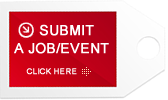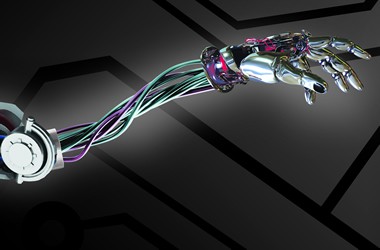http://icsr2014.org/attention
attention@icsr2014.org
Abstract
Social robots will not be accepted in society unless they exhibit social intelligence. They will need cognitive capabilities that support social intelligence. Research from various fields, including artificial intelligence, robotics, computer vision, cognitive psychology, cognitive science and neuroscience, provides crucial knowledge about such necessary cognitive skills. However, further investigations are still required to orchestrate these capabilities in order to achieve social intelligence. Attention is known to play a crucial role in intelligence. It affects other cognitive processes, including perception, action selection, decision making, planning, memory, emotion and learning. It potentially provides a mechanism for managing the cognitive capabilities required to achieve social intelligence. Research on attention remains challenging in all levels from visual perception to decision making and planning. This workshop aims to examine the role of attention in social intelligence and to foster the emergent area of attention in social robotics.
Invited Speaker
Prof. Giuseppe Boccignone
Associate Professor at University of Milan
Department of Computer Science
Analysis of Images and Vision Laboratory
Important dates
- Full/Short paper submission: 1st September 2014
- Notification of acceptance: 22nd September 2014
- Final camera-ready version: 6th October 2014
- Workshop at ICSR 2014: 27th October 2014
Workshop format
The workshop will be organised around a set of presentations from selected peer reviewed papers, with following discussions. A tutorial demonstration of a social robot application will be provided during the progress of the workshop. We expect a full-day workshop.
Submission guideline
Potential participants are invited to submit either a full-length technical paper, a short position paper or extended abstract. Technical papers must be no longer than 10 pages in length, including references and figures. Short position paper and extended abstracts can be up to 3-4 pages in length. We encourage the submission of papers on new and critical issues as a way to start interesting conversations during the workshop. Videos and multimedia material are also welcome.
Relevant topics
Contributions are sought in the following areas of research:
- Theories of computational attention
- Applications of attention in Social Robotics
- Computational architectures for attention
- Attentive control in robotic and cognitive systems
- Attention in reasoning, decision making and planning
- Social Attention, Social Referencing and Social Reputation
- The role of attention in empathy and Theory of Mind
- Attention in novel situations, surprise and anticipation
- Aspects of attention in curiosity, creativity, interestingness and aesthetics
- Aspects of attention in memory
- Joint attention in human-robot interaction
Due to the diversity of disciplines engaging in this area, related contributions in other fields are also welcome.
Publishing
The papers accepted to the workshop (both full-length papers and short position/abstract papers) will be published online on UTS ePRESS (http://epress.lib.uts.edu.au/).
Organisers
Workshop chairs
- Rony Novianto (University of Technology, Sydney)
- Jonathan Vitale (University of Technology, Sydney)
Program Committee
- Azizi Ab Aziz (University Utara Malaysia, Malaysia)
- Christian Balkenius (Lund University, Sweden)
- Angelo Cangelosi (University of Plymouth, UK)
- Birger Johansson (Lund University, Sweden)
- Takayuki Kanda (ATR, Japan)
- Maxim Makatchev (JIBO, USA)
- Alberto Montebelli (Aalto University, Finland)
- ChungHyuk Park (New York Institute of Technology, USA)
- Junpei (Joni) Zhong (University of Hertfordshire, UK)





